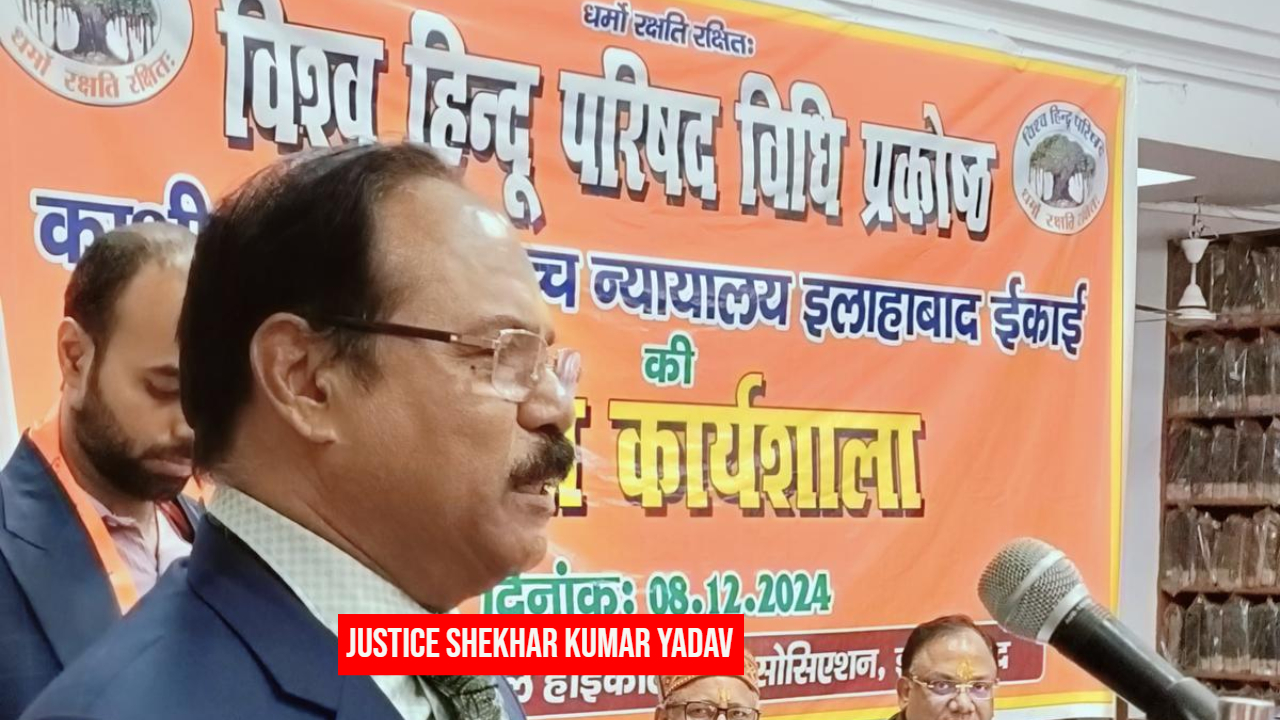 |
|
The Supreme Court of India has initiated an inquiry into a controversial speech delivered by Justice Shekhar Kumar Yadav, a judge of the Allahabad High Court. The speech, delivered at an event organized by the Vishwa Hindu Parishad (VHP), a Hindu nationalist organization, has sparked widespread condemnation for its allegedly communal and derogatory remarks targeting the Muslim community. News reports indicate that Justice Yadav's address included inflammatory language and the use of a derogatory slur against Muslims, prompting concerns about the judge's impartiality and adherence to judicial ethics. The Supreme Court's intervention underscores the gravity of the situation and the potential implications for the integrity of the judiciary. The Court has requested detailed information regarding the speech from the Allahabad High Court, signaling its determination to thoroughly investigate the matter. This action reflects the judiciary's commitment to upholding its reputation for fairness and impartiality, a cornerstone of a democratic society. The incident highlights the complex interplay between religious sentiments, political discourse, and the responsibilities of judicial officers in maintaining public trust.
The controversy surrounding Justice Yadav's speech extends beyond the specific content of his remarks. It raises fundamental questions about the role of judges in public life and the potential for their actions to undermine public confidence in the justice system. While judges are entitled to freedom of expression outside their judicial duties, the line between personal opinions and the expectation of judicial impartiality can be blurry. The potential for bias, even perceived bias, can significantly impact the fairness and legitimacy of judicial proceedings. This case compels a closer examination of the ethical guidelines and codes of conduct that govern judicial behavior, particularly in relation to public pronouncements that could be interpreted as biased or discriminatory. The Supreme Court's response emphasizes the importance of maintaining the integrity of the judiciary and preventing any perception of bias or partiality that could erode public trust in the legal system.
The Supreme Court's decision to seek details from the Allahabad High Court represents a significant step in addressing the concerns raised by Justice Yadav's speech. The Allahabad High Court's response will be crucial in determining the next phase of the inquiry. The investigation will likely focus on verifying the accuracy of the reported statements and assessing whether Justice Yadav's conduct violated any judicial ethics or codes of conduct. The outcome of this inquiry could have far-reaching implications for the judiciary's approach to handling similar instances of controversial statements by judges. It could also lead to a review of existing guidelines and regulations to better clarify the boundaries of acceptable conduct for judicial officers. The transparency and thoroughness of the investigation will be closely scrutinized, both within the legal profession and by the wider public, as the integrity of the judicial system is paramount for upholding the rule of law in a diverse and pluralistic society. The case presents an opportunity to reaffirm the principles of fairness, impartiality, and respect for all citizens, irrespective of their religious background.
The incident serves as a reminder of the importance of judicial independence and the need for judges to uphold the highest standards of impartiality. It also underscores the importance of fostering an inclusive and tolerant society where all citizens are treated with respect and dignity, regardless of their religious beliefs. The Supreme Court's intervention in this matter highlights the judiciary's commitment to upholding its own standards of conduct and addressing instances of potential bias or misconduct. The outcome of the investigation will be pivotal in shaping the future of judicial ethics and ensuring the continued trust and confidence of the public in the justice system. The case underscores the need for ongoing dialogue and debate surrounding the responsibilities and limitations of judicial officers in the public sphere, ensuring a balance between personal freedom of expression and the paramount importance of maintaining the integrity and impartiality of the judiciary. The case's implications extend beyond the individual judge involved and raise crucial questions about judicial accountability and the need for robust mechanisms to address potential breaches of ethical conduct.
